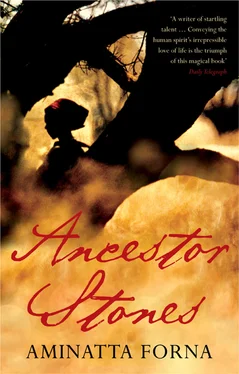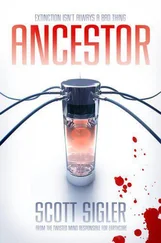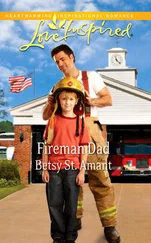Late in the afternoon I follow my mother down to the river with a new load of washing. The colour of the sun has deepened and the red dust sparkles in the air, the day has turned a hazy amber, like a piece of coloured glass tumbled by the sea. The light settles gently on our skin, the soft glow outlines our features.
Down on the rocks I help scrub the clothes clean with black soap, and I hold one end and twist one way while my mother twists the other and together we wring the water out. And afterwards Yaya and me, we bathe in the stream and watch a single, stray, green-blue, glistening bubble hovering over the river. And we practise opening our eyes underwater. And make boats out of leaves and sail ant families across the water in them.
And then I see the man again. He is coming down the path behind our mother and he passes the boy, the one who can’t speak and never grew up. The man is wearing country clothes with a triangular pocket at the front of his smock. The boy is standing in the grass. And the man raises a hand and the boy raises one also. And they slap their hands together high in the air. The sound bounces off the water. And the boy laughs and the man carries on walking towards us, while the boy stands on one leg like a heron watching him.
That’s all I really remember about him. That day he sat next to my mother for a short while. He asked for a piece of our soap; I saw her stand up and go to the laundry basin, unwrap it and hand it to him. And then he slipped into the water and swam with us. He let us ride on his back, and we squirmed and slid off his skin, which was as smooth as a manatee’s. And then I laughed so much I took a big breath and forgot I was underwater; he held me up and squeezed me until I spewed reedy green river water back where it came from. And he said:
‘Sorry, Ma,’ as he handed me back to my mother. And she said:
‘Come on. Yaya. Serah. Enough.’ He waved at us as we walked away. And when I turned around at the last place where you could see the river, I saw him covered in lather, soaping himself with the slither of black soap.
For a long time I thought that was all it took: a shared ball of soap between a man and a woman.
But that was just the beginning. Not the whole of it. Not even the half of it.
He wasn’t the usual kind of grown-up. We would talk about him in the years to come. In hushed voices. Remember when? We had gathered together fragments of the story and tried to make them fit, wedging in a little detail, filling a space with a new revelation, a sudden realisation.
We called him the Cement Man.
The Cement Man. Our name for him. Not the name she refused to call when she faced the elders: the unspoken name that circled in the air like a fly. So why, asked the elders, not too unkindly because after all this was just woman palava , though more serious than most — also because they knew they had her — why did she now refuse to swear?
Sometimes when I look at the past I see a swamp: cloying, dark, impenetrable. Like the mud we swilled as children building our playhouse. Mud covering everything, smeared over the detail of recollections, submerging memories. Mud you wade about in trying to locate a lost image or event. Then, usually when you least expect it, the mud throws something up: perfectly preserved as a corpse in a peat bog.
Night-time. I tumble out of my dreams and into the silence of the bedroom.
I can hear my breathing. Scared breathing. Short, breathless breaths. My eyes are open wide letting in the darkness, watching the shadowy figures scuttle to the edges of the room where they slide along the walls and slip back into the place where the wall meets the floor. Banished by wakefulness, they promise to return as soon as I close my eyes again.
I can hear my brother breathing. Open-mouthed, snuffle-nosed breathing. Still holding on to life breathing. The breathing of babies and little children, as though they can’t ever get enough air.
My mother’s breathing: deep-sleep breathing. Long, slow breaths. Shimmering snores suspended in the air.
Three kinds of breathing.
In my bladder, an irresistible urgency. I lie on my back, wishing the feeling away. Then I reach over and rock my brother, vigorously. I’m afraid to go to the toilet in the dark. Yaya is ashamed he still wets the bed. This is our understanding. We go together at night to the toilets behind the houses. So I don’t have to cross my legs and pray until dawn. And he doesn’t dream of floating on warm water and wake up in a cold, sodden bed.
We bang the door and stamp our feet, announcing our presence for the benefit of the lizards and cockroaches who lurk in the dark places and cling underneath the overhang of the hole in the floor. The hole gives way to a bottomless pit and a nameless, simmering, steadily rising tide. I squat first: knees together, ankles splayed, thighs quivering, head bent watching the steaming trickle fall into the terrifying blackness.
We march back past the banana groves. The night is cool. A huge moon dangles over the village, like an overripe fruit. The shadows are solid, sharp, small. A dog lifts its head. A nose swings our way like a weathervane, marks our progress for a while and then is tucked back beneath a tail. A lamp behind a window outlines a door and the lattice work of the shutters. Giant shapes move about inside.
We have been gone no time at all. No time at all. And yet in that time everything has changed. Something is happening in the village. Something mars the silence, rumbles beneath the stillness. It takes a moment to realise it.
Far away the sound of voices raised and bare feet pounding the ground and the flicker of torches. People! People purposefully marching. People we have never seen before.
Something is happening and we are awake to see it. Not going to miss it, not going to sleep through it like all the other somethings that happened after we had already gone to bed. Nobody will say to us: ‘Oh, you were already asleep by then,’ when they tell the story in the coming days. We are awake. Whatever it is we’ll be the ones to tell the other children in the morning.
We hurry in the direction of our house, a pair of busybodies, to spy from the safety of our bedroom window and discover what business has brought these good folk to us in the middle of the night.
They are ahead of us. Passing our father’s new house now. The smell of wet plaster carries on the breeze. The house is finished. Today the carpenter came and hung the doors: heavy, wooden doors decorated with carvings of monitor lizards — our family tana . The carvings are not good. The lizards look like pigs.
The people march on. We follow behind them at a discreet distance. Hearts thumping, scared breathing, not wanting to be seen. What if it is the poro spirit come to town? Then we should run and hide, our mother warned us one day chasing us back from the fields, ‘Or he’ll catch you and take you away. And I’ll never see you again.’ I giggled so hard as I tried to run I ended up with a stitch in my side. Then her face grew solemn. She once lost a brother that way. A little brother who had been sitting in the road when the spirit came to town. Caught unawares, by the time they heard the sound of the tortoiseshell the spirit and his dancers were already close. She was on the verandah and ran inside. The women slammed closed the windows and doors. It was too late to fetch him in. They thought he would be all right; in those days they left the very little ones. But when they came out he was gone. Into the sacred bush.
My breathing comes faster, my toes curl under me, as though my feet are afraid to touch the ground. I reach out and touch Yaya’s arm.
Then again perhaps they have come from a celebration. Perhaps there will be dancing, a bou bou or a masquerade.
Читать дальше












